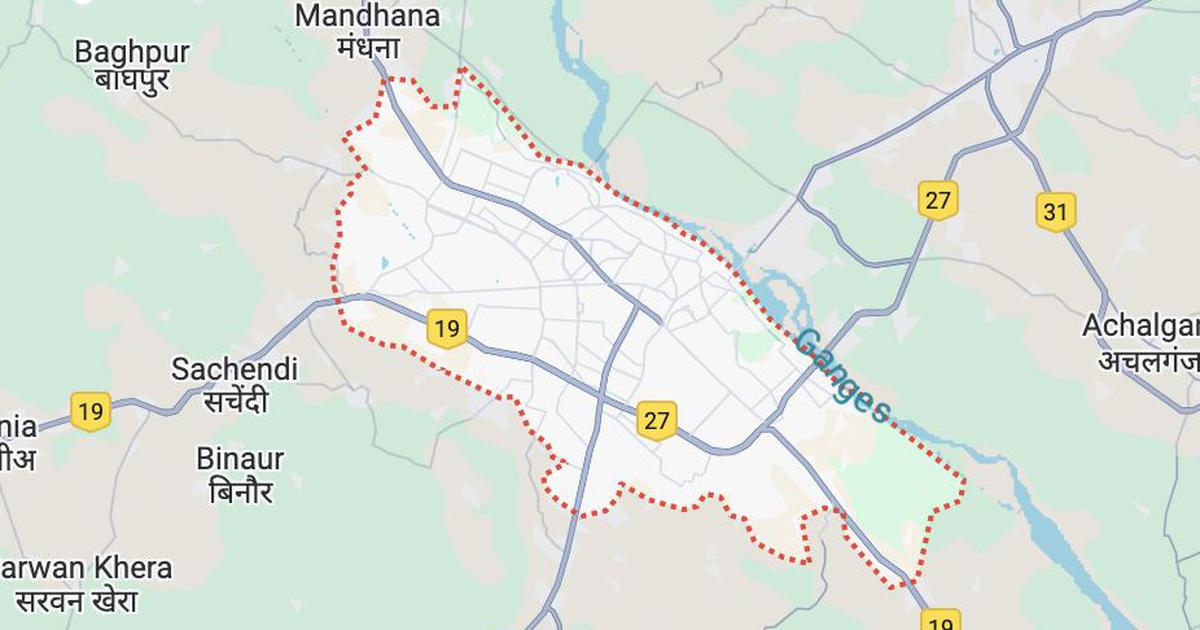To the 26-year-old’s astonishment, when she managed to report her confinement to local police, they took her parents’ side and urged her to end the relationship.
Mehak is from Uttar Pradesh state, which recently criminalised forced religious conversion, including by way of interfaith marriages – legislation critics fear could be used to control women and stop them freely choosing who to marry.
“I knew what I was doing wasn’t illegal. It was my choice. I am educated, I have a mind of my own … would I jump into fire?” Mehak, a government employee, told the Thomson Reuters Foundation by phone.
Eventually, she left the state with her fiance, who she plans to marry soon.
But far from planning their future together, the couple are in hiding and fear reprisals from her parents or members of fringe Hindu nationalist groups that have targeted interfaith couples since the anti-conversion law was passed in November.
“I’m scheduled to get married but my strongest emotion right now is not happiness but fear for our lives,” said Mehak, asking to use a pseudonym to protect her identity.
Men have been arrested and women forced into shelters in Uttar Pradesh under the new law, which imposes prison terms for anyone convicted of compelling others to change their faith or luring them to do so through marriage.
PROTECT YOUNG WOMEN
Officials in Uttar Pradesh, which is the country’s most populous state, have said the law will help prevent fraudulent religious conversions and aims to protect young women.
Two other states – Uttarakhand and Madhya Pradesh – have implemented varying versions of anti-conversion laws with at least three other states – Haryana, Karnataka and Assam – planning to bring in similar legislation.
But critics say the measures – besides being directed at the country’s Muslim minority – are paternalistic and assume women need protection at the cost of their right to make reasoned decisions about changing faith or choosing a romantic partner.
“Adult women are infantilised, placed under parental and community control, and denied the right to take life decisions,” wrote writer and editor Insiyah Vahanvaty in The Indian Express last month.
Uttar Pradesh’s women and child department did not respond to questions about the law’s potential impact on women’s rights.
Meanwhile, support groups for interfaith couples in Delhi and Uttar Pradesh have reported a spike in the number of calls for help to navigate the new obstacles to marriage.
Demonstrators protesting “against the lies of love jihad” have held marches this month, holding up posters depicting pioneering figures in India’s women’s rights movement such as Savitribai Phule and Fatima Sheikh.
“They are not considering women as adults. They are allowed to vote, choose their government, but cannot choose their life partner,” said Akanksha Sharma, joint secretary at non-profit Dhanak, which works with interfaith couples.
‘LIKE A BOY’
Interfaith couples in India can marry under a 1954 law, which does not require them to convert to the same faith but obliges them to give one-month’s notice – during which time objections to the union are invited by the marriage registrar.
In some states including Uttar Pradesh, marriage registrar offices also send notices to the addresses given in the couple’s identity documents, which is often their parents’ address.
Since many face parental resistance, social ostracism and in extreme cases violence, many interfaith couples opt to wed under alternative marriage laws, lawyers said.
“They convert to another faith to register quickly under say Hindu or Muslim marriage acts,” said Flavia Agnes, activist and founder of Majlis Legal Centre in Mumbai.
That way, notices about their marriage plans do not reach their families, said Renu Mishra, executive director of women’s rights non-profit Association for Advocacy and Legal Initiative in Lucknow.
But the new anti-conversion law scuttles that workaround – requiring couples to give two months’ notice to the district magistrate before they can convert.
Mishra said it marked a setback for women’s rights in the country of 1.3 billion, where rising numbers of women are studying, pursuing careers, moving cities for work and living alone.
Mehak, the youngest of four sisters, said she was raised “like a boy”.
But the freedom and encouragement she received from her parents to study and advance her career as a government employee did not extend to her personal life.
Even in relatively liberal families, many parents are unwilling to let daughters choose their partners freely.
“The father is the custodian of the girls’ chastity and sexuality and will give it as a prized possession to someone he decides. The girl’s consent does not matter,” Agnes said.
Mehak said the new law – though aimed at stopping forced conversions – would end up stoking social pressures over interfaith marriage and risked curbing women’s hard-earned freedom.
Her fiance’s family also objected to the marriage, but they came around after he put his foot down.
“They didn’t want to lose their son. So there was no pressure on him,” she said. “Men have no such pressure.”
This story first appeared on reuters.com






